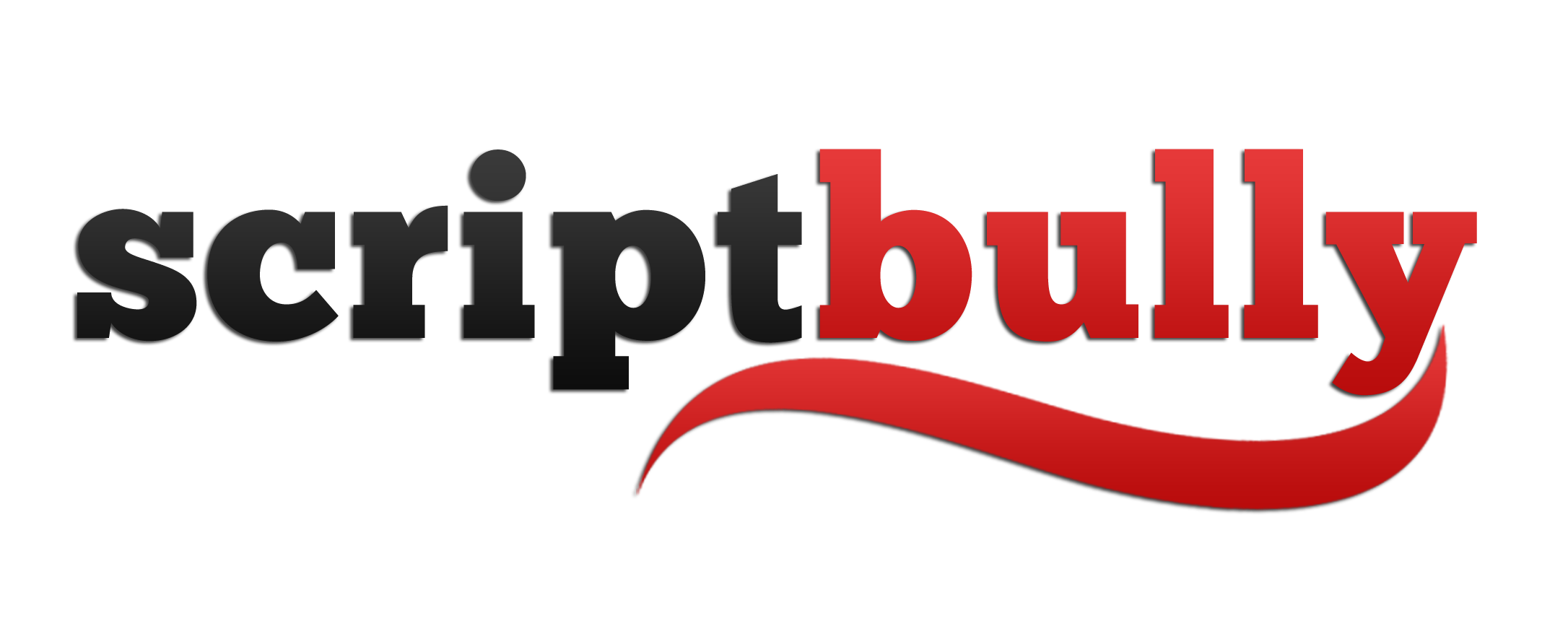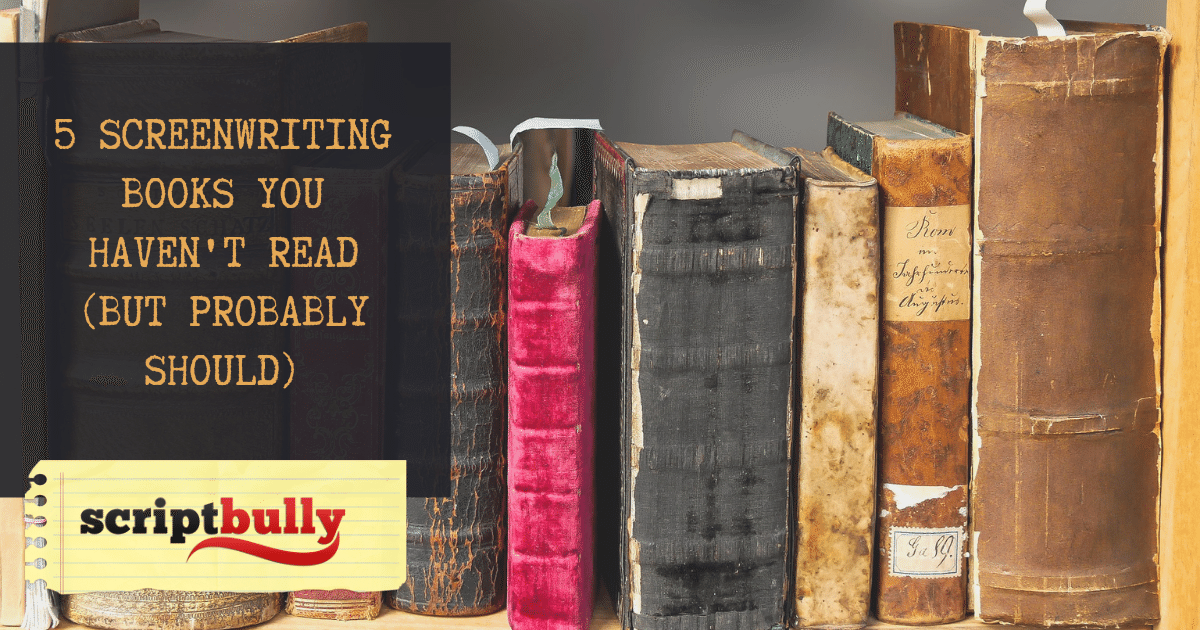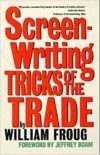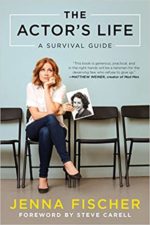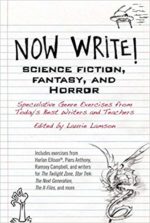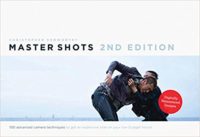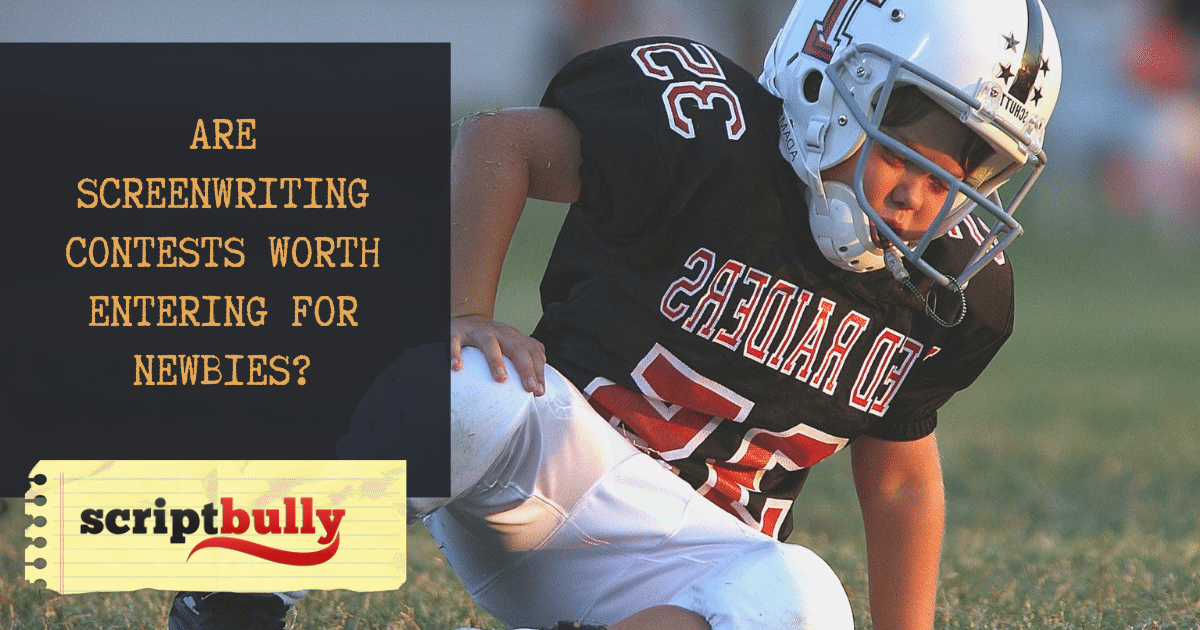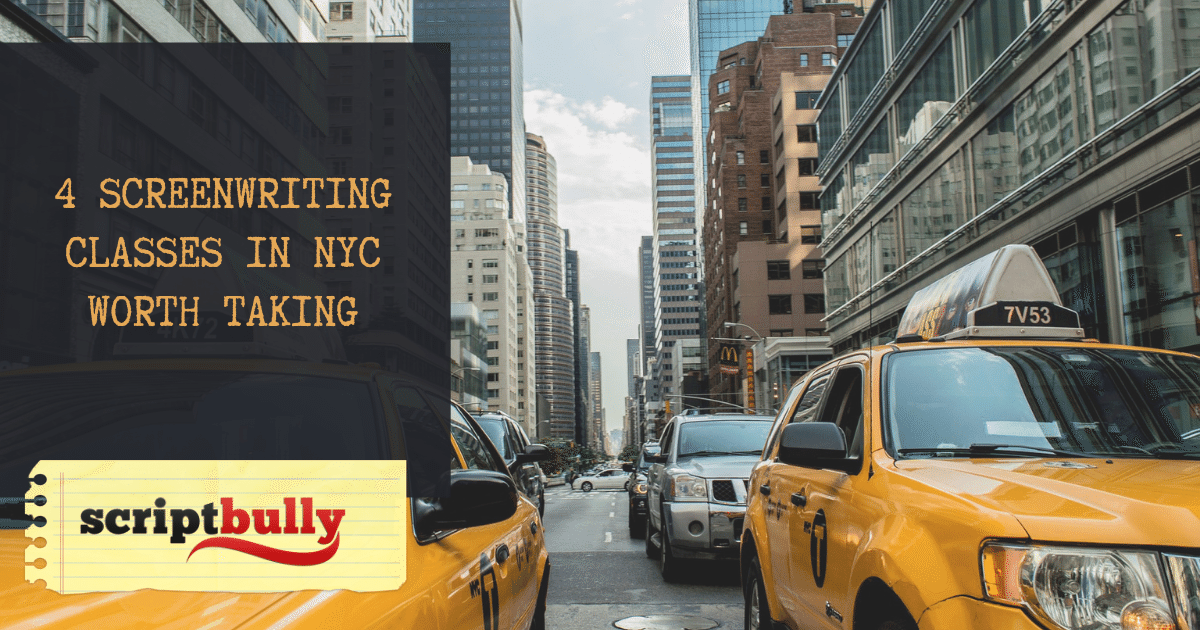We all know the usual suspects when it comes to screenwriting books.
Every would-be professional screenwriter has a crowded bookshelf littered with the likes of Robert McKee’s Story, Blake Snyder’s Save the Cat, Linda Seger’s Making a Good Script Great AND one of the legion of screenwriting book iterations Syd Field cranked out. (May his productive bad-ass self rest in peace.)
But just as watching some obscure foreign film on Netflix can broaden your screenplay education – Danish Cyberpunk, anybody? — so also can reading one of the more overlooked, off-the-grid screenwriting volumes give you a choice nugget. (And also prevent your screenplay from reading like a carbon copy of what everybody else is churning out.)
So, here are five helpful (but slightly obscure) screenwriting books worth adding to your Amazon wishlist:
Best Screenwriting Books You Probably Haven’t Read (Yet)
Book#1: Screenwriting Tricks of the Trade – William Froug
I have to be honest; I am completely biased when it comes to this book.
Not only did I get a chance to take a class from Mr. Froug at UCLA – name-dropper! – but this book is everything I look for in a screenwriting book. It’s:
- Short
- Not rigid about structure
- Free of the fluff of most screenwriting books
- No upsell to “Buy my writing software, now!”
Think of this as a screenwriting version of Strunk and White’s Elements of Style. Unpretentious. Unrelenting. Something you should read every month or so.
Browse on Amazon: Screenwriting Tricks of the Trade
Book #2: Story – Robert McKee
Huh?
Story, by Robert McKee? Are you kidding? Everybody has a copy of this book.
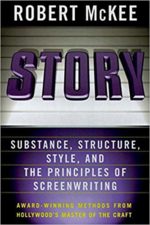
You’re probably right. Most screenwriters DO have a copy of this book. But not many screenwriters have actually READ the book. (Can’t blame somebody for being overwhelmed by a book that can concuss a cat, if used nefariously.)
Which is a shame. Lots of good stuff in there.
I especially think every screenwriter should look at the sections on:
- Genre (His absolute sweet spot)
- Research
- Writing a treatment
- How to establish your story’s premise as a dialectical debate
These juicy nuggets come in the second quarter of the book. And right before the breakdown of beats in a story, you know the part that looks like a chemistry diagram of your story.
If you haven’t cracked this tome open recently, or it never got removed from your Barnes and Noble bag, give it another try. It’ll be more valuable than that piece of story writing software collecting dust on your PC.
Just don’t try to finish the whole thing. You got other things to do…like write your damn script!
Browse on Amazon: Story
Book #3: The Actor’s Life (A Survival Guide) – Jenna Fischer
Okay, so this isn’t technically a screenwriting book. (Though I think Fischer’s hilarious story could definitely be made into a film…and something far better than Being John Malkovich.)
But not only is this this best book I’ve ever read on detailing exactly what a would-be actor goes through in Hollywood — spoiler alert: it ain’t pretty — it’s also the perfect way to get inside the mind of the very folks who can often make-or-break your script’s chances of getting read.
Because every cog in the Hollywood wheel that can help your script get optioned — producers, managers, agents, directors — knows that “ALL roads lead to the actor.”
And unlike many of the other dry, insufferable acting guides this book is a funny, honest and inspiring. (Something us screenwriters could always use.)
Browse on Amazon: The Actor’s Life (A Survival Guide)
Book #4: Now Write! Speculative Genre Exercises From Today’s Best Writers and Teachers
There are a metric crap load of writing exercise books out there.
Most of them are a bit artsy-fartsy for my tastes — “write about your first memory” — but every book in this series provides nuts-and-bolts exercises that can help stretch your creativity and simply get you writing more.
Of course, these books are designed primarily for fiction writers. But so what? All you gotta do is just take the exercises and turn them into mini 5-page standalone scenes and they are the perfect writing session generators.
Bonus: If you’re a dedicated genre writer, such as in Horror, Sci-Fi, Mystery or Thriller, then they’ve got books organized just for you. (And if you’re needing to develop your comedy muscle then just take the same exact exercise and give it a comedic spin.
I can’t recommend this series enough. Even the best screenwriting software in the world won’t get you writing. These books will.
Browse on Amazon: Now Write! Speculative Genre Exercises From Today’s Best Writers and Teachers
Book #5: Master Shots Vol. 1- Vol. 3 – Christopher Kenworthy
On the surface, it may appear I’m cheating. Again.
I’m adding a non-screenwriting book to my list of screenwriting books you should totally check out. But I vehemently disagree.
This series of books on giving the low-budget film director everything they need to pull off any type of camera technique is an absolute must in every screenwriter’s library.
And that’s for one very simple reason: unless you have experience on the production side you won’t really know what’s possible — and not possible — when it comes to the camera.
- You won’t know the best way to write a dialogue-heavy scene without putting people in a coma (Vol.2)
- You won’t know some of the cool set-ups that directors can do when establishing a scene (Vol.3)
- You won’t know how to write your script around camera techniques that are realistic and affordable (Vol.1)
And let’s face it, most of us are writers for a reason. We ain’t that good at all that camera crap.
This series of books takes care of that blindspot and can up your film craft IQ in no time.
This isn’t to say you need to fill your script with CUT TOs and MOVE IN ON. But digesting these screenwriting books will give your stories much-needed professional credibility, not to mention a treasure trove of cool ideas that won’t require 130 million dollars to shoot.
Browse on Amazon: MasterShots
What’s Your Screenwriter Take?
Do you have some favorite screenwriting books not on this list? Of course you do. Let us know in the comments below.


